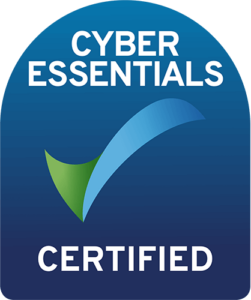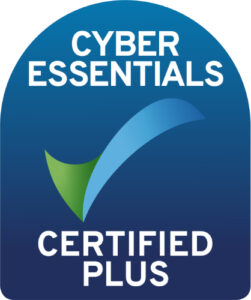Thinc insights
What does ‘in the cloud’ really mean for your business? Let’s take a look at the key cloud concepts for SMEs and where you can benefit.
As cloud technology becomes more widespread, businesses of all sizes are looking to move from traditional on-premises setups to harness the power of the cloud.
Cloud computing for small businesses is an interesting area as while there are many software solutions still in use that run off a local server or computer, many newer tools for SMEs are now available ‘as a service’.
Some companies may be cautious about leaving behind one model for another or be unaware of the potential benefits of the cloud; others may be under the impression that cloud setups are only for big businesses.
In this article, we’re breaking down some of the must-know cloud concepts for SMEs, so you’ve got all the info you need when deciding whether to take your business to the cloud.
Cloud computing is when your computing services, including storage, infrastructure, and software, are delivered over the internet (the cloud) rather than through local servers or physical personal devices. Instead, your data and systems are stored in secure data centres run by your cloud provider.
This allows you to access and store data, run applications, and manage operations remotely, giving you massively increased flexibility and scalability compared to relying on on-premises hardware. In fact, all you need is an internet-connected device to access and manage your data and systems.
Cloud setups can vary depending on the company. For example, a small business cloud setup may only use some aspects such as data storage and backups without the need for larger infrastructure hosting.
Cloud computing can seem very complicated at first. There are several different services and acronyms to wrap your head around before deciding what’s best for your business. We’ve put together a handy guide to cloud concepts for SMEs to demystify some of the most important terms.
Software as a Service (SaaS) is when software applications are delivered over the internet, without the need for any local installation or hardware. This is generally run on a subscription basis, which reduces the upfront cost.
SaaS is something that almost every business will already be interacting with in some form or another already. Common day-to-day apps like Microsoft Office or Google Workspace are an example of software that you don’t need to install on physical hardware to run. This concept also extends to cloud-based versions of business systems like Sage 200 and SAP Business One.
Platform as a Service (PaaS) gives companies a place to develop, deploy and manage applications in the cloud, without building or maintaining all of the underlying infrastructure – which can often be highly complicated and require a lot of technical know-how to run.
PaaS offers resources like servers, storage, databases and networking, along with development tools, middleware and business intelligence services. An example of a PaaS would be Microsoft Azure, which gives you a complete powerful cloud platform in a streamlined, simple-to-use package.
Infrastructure as a Service (IaaS) is a model for providing virtualised computing resources over the internet. These resources can include virtual servers, storage and networking capabilities. This does away with the need for costly hardware and can be more easily scaled up or down depending on your needs.
There is some crossover in terms of the functionality of PaaS and IaaS. For example, Azure could be considered both IaaS and PaaS depending on the specific use case – which is why it’s a popular cloud server for small business. It ticks a lot of boxes and is highly flexible.
Cloud hosting is a general term for when your websites, applications, or data are hosted on virtual servers on the cloud. These are then accessed from an internet connected device, removing the need for any physical hardware for hosting. This could mean your systems and data are hosted on shared public servers from a third party, your own private cloud, or a mix of the two (a hybrid setup). To find out more about the differences between public, private and hybrid cloud hosting, check out our full explainer.
Moving a small business to cloud solutions brings a wide range of benefits for SMEs when compared to traditional on-premises setups.
The hardware needed to run business applications can be prohibitively expensive for many smaller companies. The cloud does away with the need for any hardware as everything is hosted on your provider’s servers.
You’ll also be able to much more easily scale up and down to meet your business’ needs, so you know you’re not wasting money on resources you don’t need.
Cloud computing gives you stronger disaster recovery capabilities as you’ll get automated backups and data redundancy spread across multiple geographic locations.
This means that your data will still be safe and recoverable in the case of a hardware failure, natural disaster or cyber attack.
There’s a common misconception that, as your data is being stored elsewhere, cloud computing can be less secure than on-premises setups. This isn’t true. Cloud providers offer enhanced security features, including encryption, multi-factor authentication and data redundancy.
You also don’t need to worry about staying on top of security updates to stay safe, as these are typically done automatically for you.
Maintaining an IT infrastructure setup capable of supporting a business is no small task. You’ve got to make sure that all the hardware is working properly, as well as keep up with all of the software – including managing updates and patches – which can often be technically complicated.
Cloud providers will take care of all of this, meaning you know you’ve always got the most up-to-date setup and freeing up your time.
At Thinc, we’ve got extensive experience of helping businesses unlock a new level of productivity and security by moving to the cloud. We’ll take you through the whole process, including finding the right solution from your business, taking care of the whole migration process, and giving you all the ongoing support you need.
Whether you’re after cloud backups or complete cloud hosting with our private cloud or Microsoft Azure, we’re here to help. Just get in touch to book a no-obligation chat to discover your options.
Related Topics
Clarifying the cloud - explore our free ebook


Enter your details into the contact form below, and one of our experts will be in touch to arrange a time to speak.
If you’re an existing customer looking for support, please e-mail servicedesk@wearethinc.com, or visit our support page where you can download our remote support apps.